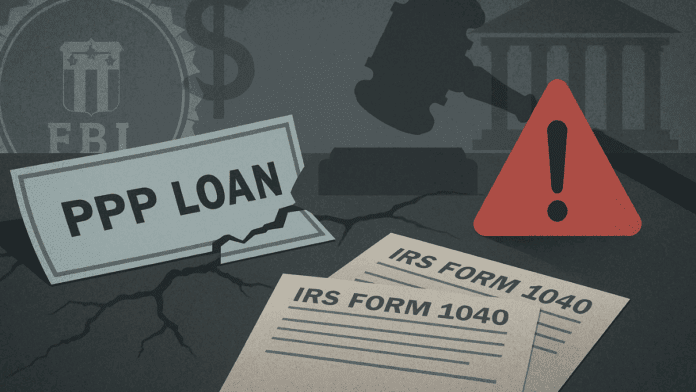Shamiese Wright, 32, of Charleston, has admitted in federal court to aiding and abetting money laundering related to a fraudulent Paycheck Protection Program (PPP) loan. These loans were designed to help self-employed workers and small businesses survive the financial hardships caused by the COVID-19 pandemic.
Wright acknowledged that she was not self-employed and had never earned the income stated in her loan application. Yet, on April 19, 2021, Kisha Sutton, 44, of Jersey City, New Jersey, submitted a PPP application on Wright’s behalf. The application falsely claimed that Wright was a self-employed individual who had made $75,000 in 2020.
To support this false claim, a fraudulent IRS Form 1040 Schedule C was created. It appeared to show Wright had earned the income required to qualify, even though she had not. The form was submitted solely to deceive the government and secure the loan.
A Florida-based lender approved the fraudulent application, and around May 7, 2021, $15,625 in federal loan funds was deposited into Wright’s personal bank account in Charleston.
???? Spokane’s Berg Busted: $3.3M Payout in Explosive Military Contract Fraud Scheme
Hidden Transfers and Fake Descriptions
Shortly after receiving the funds, Wright used a digital wallet app to transfer $3,000 to Sutton between May 7 and May 21, 2021. According to court documents, these payments were prearranged as compensation for Sutton’s role in submitting the fake application.
To hide the illegal nature of the transaction, Wright split the payment into smaller amounts and used misleading transfer descriptions. These efforts were made to disguise the true purpose of the payments and to avoid drawing attention from banks or investigators.
Wright used the remaining loan funds for personal spending. She acknowledged in court that the entire application was based on false information and that she knowingly spent federal funds she was not entitled to receive.
The PPP program, created under the CARES Act, required applicants to prove they were operating a business as of February 15, 2020, and to submit tax forms showing gross income from 2019 or 2020. Wright provided no such legitimate documentation, and instead, relied on fake records.
Broader Scheme and Legal Consequences
Wright is one of several individuals charged in a broader scheme involving fraudulent PPP loans totaling $140,625. Others charged include:
Justice Department busts $16M hospice fraud — BMWs, fake IDs, and stolen care funds
- William Powell, 35, of Huntington, who pleaded guilty to conspiracy to commit bank fraud. He is scheduled to be sentenced on August 14, 2025.
- Damisha Brown, 32, of Charleston, who also pleaded guilty and is awaiting sentencing on October 2, 2025.
- Jasmine Spencer, 32, of Charleston, who pleaded guilty to aiding and abetting bank fraud. Her sentencing is set for August 21, 2025.
The fraudulent PPP scheme was investigated by the Federal Bureau of Investigation (FBI), the Bureau of Criminal Investigation (BCI) of the West Virginia State Police, and the Public Integrity and Fraud Unit (PIFU) of the West Virginia State Auditor’s Office.
Acting United States Attorney Lisa G. Johnston announced the guilty plea and praised the joint efforts of all investigating agencies. United States District Judge Irene C. Berger presided over the plea hearing. The case is being prosecuted by Assistant United States Attorneys Jonathan T. Storage, Jennifer D. Gordon, and former Assistant U.S. Attorney Holly Wilson.
Wright is set to be sentenced on October 29, 2025. She could face up to 20 years in prison, a maximum fine of $500,000, up to three years of supervised release, and may be ordered to pay restitution totaling up to $18,736.73.
The case highlights how federal emergency aid programs were exploited during a national crisis. Funds that were meant for struggling small businesses and individuals during the COVID-19 pandemic were instead targeted in a calculated fraud involving fake tax forms, false identities, and hidden money transfers.


